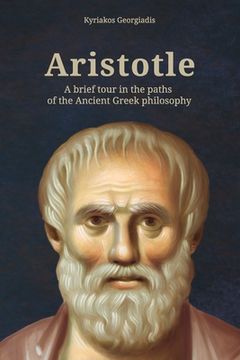Aristotle: A brief tour in the paths of the Ancient Greek philosophy (in English)
Synopsis "Aristotle: A brief tour in the paths of the Ancient Greek philosophy (in English)"
Aristotle was a many-sided intellectual. Philosophy and science were harmonically united in his personality. He and his students studied every field of human activity, as well as of nature. He collected and recorded every piece of knowledge of his epoch and afterwards he scrutinised them with discerning eyes. His works, which are classified into many categories (logical, natural, ontological, ethical, political, rhetorical, and poetical), are the base of many sciences. That is why he has been surged at the top of philosophy for more than 16 centuries, since the time he became more broadly known -in the 1st century B. C., after the first edition of the whole of his surviving works by Andronicus of Rhodes.At first, he was naturally academic and an avid reader. He was born in the ancient Stageira of Macedonia in 384 B. C. in a wealthy family -his father was a doctor in the court of the king of Macedonia Amyntas III. Therefore, he enjoyed the use of his father's library, initially. In the course of his life, he gradually owned a huge library -compared with the data of that time-, which he finally bequeathed to his most loyal student, Theophrastus.According to his biographer Diogenes Laertius (Vitae philosophorum, 5.32.1), he was also αἰτιολογικώτατος (mostly enquiring causes), that is, he enquired the cause in everything, to its minute details, and so he became the founder of scientific research.He did not belittle the work, conclusions, and conjectures of the older cogitators and scientists. He respected them, he took them into consideration, and he studied them. The proof of this is that he always set beforehand in his works what had been said or ascertained by the older ones. But he did not content himself with that; he pulled everything he found to be wrong to pieces and after that he formulated his own opinion -in a kindly and temperate manner. At the end, he also cited the suggestions of other thinkers regarding the specific subject of every time.

